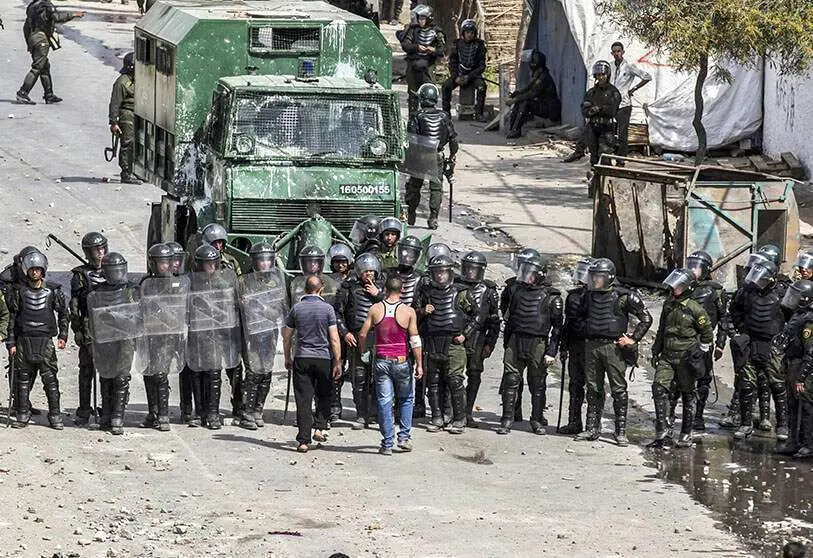Corruption in the Algerian gendarmerie poses a problem for the army

President Abdelmadjid Tebboune's plans to modernise the country, including the professionalisation of the army under the command of General Said Chengriha, the head of the military general staff, are encountering a huge obstacle in the National Gendarmerie. There are two main reasons for this.
The first is because the level of widespread corruption in the commands of the Gendarmerie has deteriorated and delegitimized the entire military forces of the North African country, in the eyes of the population. The prestige which the army has enjoyed among the Algerian population for more than 60 years, first in the War of Liberation and then in the construction of an independent state, is being tarnished by the repeated scandals which are shaking the leadership of Darak el Watani (the Gendarmerie).
In 2018, General Menad Nouba, who led the armed corps, was dismissed, accused of corruption and tried, and is now serving a 15-year sentence. General Ghali Belkecir, who replaced him, was in turn purged a year later, accused of corruption. Thanks to complicity in the corps and the State administration, he fled to Europe to escape military justice. General Abderrahman Arar replaced him in 2019, and he has just been removed by President Tebboune, who is suspected of involvement in various corruption schemes. General Nouredine Gouasmia has been appointed by the head of state to take his place, imposed by the military chief of staff.
The scandals in which the Gendarmerie Headquarters is involved range from drug trafficking of hashish and cocaine, to illicit enrichment and embezzlement of public funds, to its relations with organized crime, human trafficking and illegal arms trafficking.
The second reason why relations between the military and the gendarmes have reached this point of near breakdown is that the Army cannot replace the National Gendarmerie in its functions of patrolling the country. With its 180,000 troops, the Darak el Watani is present throughout the interior of Algeria, from the desert to the coast, and in the direct vicinity of major cities. In addition to heavy and medium weapons, all-terrain vehicles, helicopters and maritime patrols, the Gendarmerie has riot control groups, specialized security units, scientific police, cyber-criminal units and other operational groups. The Algerian Army has neither the capacity, nor the specialized training, nor the legal means to replace the functions of the Gendarmerie.
While the Army leadership has been replacing the various chiefs of staff, commanders of the military regions, commanders of corps, deputy ministers and ministers of defence, generally respecting the retirement age, although with arrests of generals accused of crimes in different cases, especially in the last two years, in the Gendarmerie it has been the leadership itself which has been periodically beheaded, giving the image to the population of a corps gangrened by corruption.
For the past five years, following the election of Abdelaziz Bouteflika to a fourth presidential term in 2014 despite his physical incapacity for the job, a consequence of the stroke he suffered in 2013, the Algerian army has attempted several times to purge the Gendarmerie Headquarters and impose competent military officers on its command.
This will be one of the tasks that President Tebboune has before him, and to which the military leadership, with General Said Chengriha at the helm, will not fail to aspire. However, from the Algerian political class and civil society, the "militarization" of the Gendarmerie leadership could be seen as a white blow from an opaque body, the Army, still unstable due to the changes that continue to take place in the high command.

